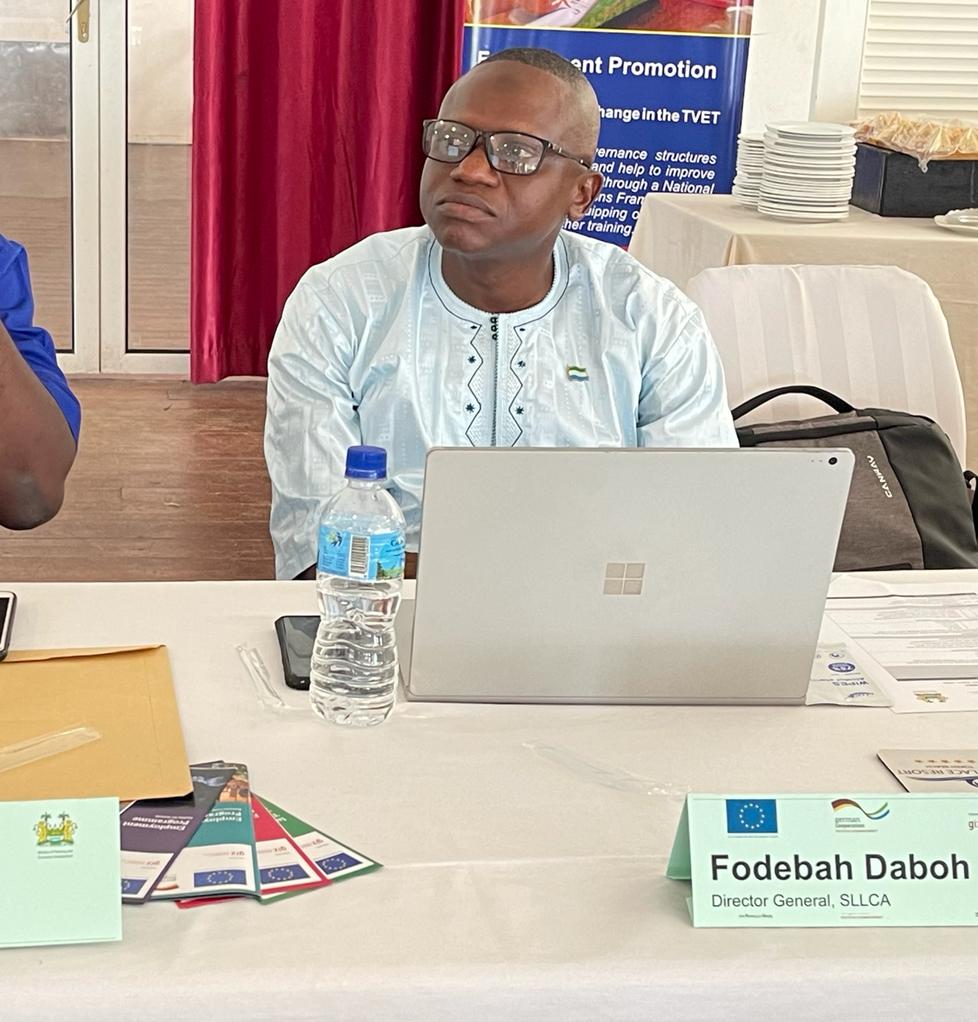 Regional Conference hosted by the Sierra Leone Local Content Agency
Regional Conference hosted by the Sierra Leone Local Content Agency
Sierra Leone through the Sierra Leone Local Content Agency (SLLCA) has on Monday November 15, 2021, hosted a two-day Regional Conference on Local Content with the theme: How to Increase Local Employment and Procurement in the Mining Sector of the Mano River Union (MRU), at the Radisson Blu hotel, Aberdeen in Freetown.
The Regional Conference brought together government Ministers, Ministries, Departments, and Agencies (MDAs), GIZ, and stakeholders from the four MRU countries (Sierra Leone, Guinea, Liberia and Cote d’Ivoire) closely involved in local content issues in the mining sector given the focus on the Regional Resource Governance in West Africa program (ReGo) of the German development Cooperation (GIZ).
The conference which is hosted with the support from GIZ will end today, 16 November, 2021. The overall objective of the conference is to share knowledge, learn new strategies with the aim of formulating a national roadmap/action plan on the implementation of a local content strategy as well as designing plans to work together to improve local content in the MRU region.
Sierra Leone’s Minister of Trade and Industry (MTI), Dr. Hinga Sandy said that the development of this regional strategy will enhance job opportunities in the sub-region for the younger folks and this will lead to meeting the demand of the job sector in the country. He commended GIZ for their support to establishing the online portal to facilitate reporting process of the companies.
In his welcome address, the Director General of SLLCA, Fodeba Daboh said that each country in the MRU has a similar but different local content model, noting that the Sierra Leone model is covered by an Act of Parliament and covers all sectors including the mining, whilst other MRU States are only sector specific.
He added that each of the model is aimed at more job creation, technology transfer, building skills, and sourcing goods locally. “This conference is strategically aimed to achieve some component of our respective country’s development plans in line with Sustainable Development Goals (SDGs) on decent work and economic growth, among others,” DG Daboh said.
Speaking on the theme, he said that it is very important to compare progress in the MRU States especially among Guinea, Liberia and Sierra Leone, which among others continue to face developmental challenges despite having abundant natural resources.

“Despite our difference in terms of strategies and languages, however, exchange of experiences methodologies and good practices for example are critical in ensuring that local content is achieved across the space,” he added. “These two days Regional Conference on local content will provide an important opportunity for us to formulate action plans within our respective countries on implementation of local content strategies and also enable us to work together in improving local content in the MRU region.”
In his keynote address, Sierra Leone’s Minister of Mines and Mineral Resources, Timothy Musa Kabba stated, “My experience as extractive professional has shown that investors in the extractive sector are willing to procure goods and services locally. This is because it is not only cheaper, but it injects cash into local economies, builds faith in entrepreneurship among young people and enhances science, technology, and innovation.”
He added, “But let us face it, we can only compete and build confidence in investors to source goods and services locally if we have the right skillsets, competence, and capacities to take advantage of the opportunities that local content brings to our sub region.”
He pointed out that investment in Science, Technology, Engineering and Maths (STEM) is critical to building the right competences that are required to support investments in all sectors, but most especially, investment in the mining sector in meaningful ways.
The Country Director of Sierra Leone, Guinea and Liberia of GIZ Regional Office, Christian Widmann said that “each MRU State has a unique economic and mining sector context: Sierra Leone, Liberia and Guinea are among the least developed countries in the world, despite having enormous minerals and other natural resources.”
He said that the domestic private sector is relatively less developed, in the absence of other industrial sectors. “Cote d’Ivoire is a middle-income country with a comparatively capable national private sector. However, the country has significant rural poverty around mining areas and a less mature industrial mining sector,” he said.
He emphasized that according to the benchmarking study commissioned by the Regional Resource Governance in West Africa program (REGO) of the German development Cooperation (GIZ), despite unique contexts, all MRU member States are in relatively early stages of realizing local content in the mining sector, adding that, and as such, “best effort” policies combined with monitoring and facilitation by government authorities are likely to yield to more successful results than strict targets.
Representing Ambassador Medina Wesseh, MRU Secretary General, the Programme Manager of MRU, Jerry B. Tarbolo said that the MRU was established in 1973 with the view of enhancing intra-union trade between member States and promoting the local content of goods originating from all member States.
He disclosed that the Consolidated Eleventh (11th) Protocol of the MRU on Principles and policies affecting inter-union trade entrenched between member States clearly articulated that “no custom can be imposed or equivalent charges can be levied on intra-union trade or any goods originating or manufactured in any one of the member States of the MRU.” He disclosed that the statistics on intra-union trade will have to be reviewed.
He called on member States to popularize the Eleven Protocol of the MRU on Principles and Policies so that both local and small-scale traders, most of whom are willing traders, to join security on the various borders as well as the MDAs, will understand that member States have acceded to a Protocol of Goods of Origin so that our traders can move more freely without harassment and paying of high custom fees on the goods whilst the transverse during business.